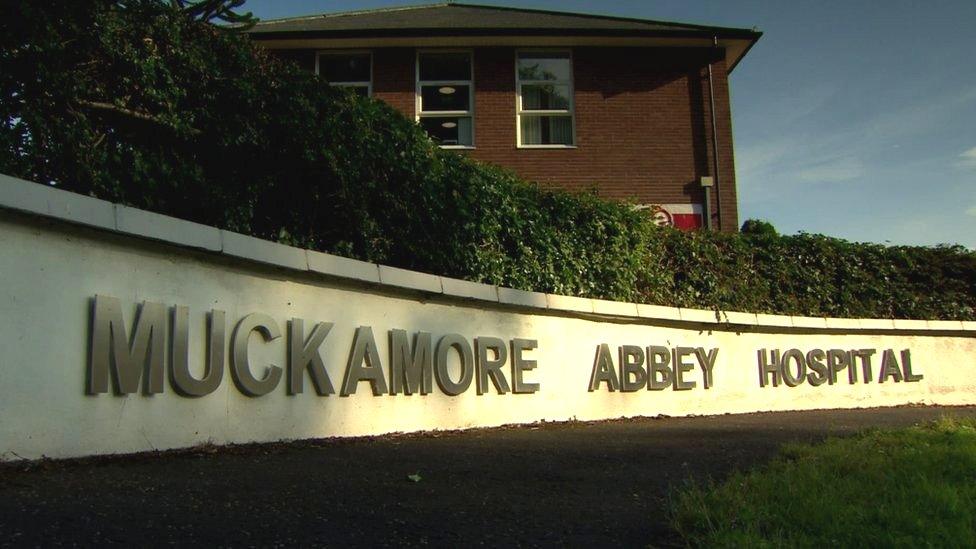Muckamore: Ex-patient's mum questions shock therapy use
- Published
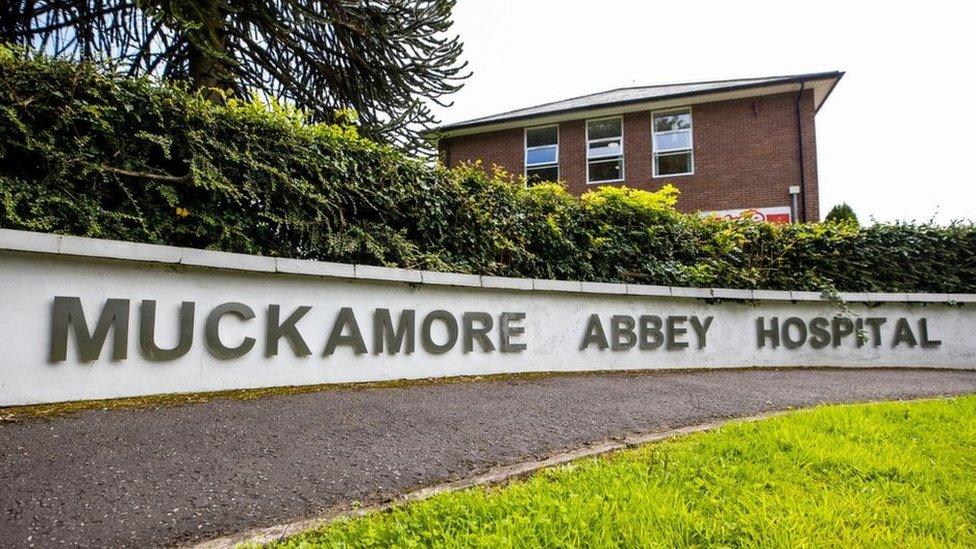
Muckamore Abbey Hospital is at the centre of the UK's biggest ever police investigation into the abuse of vulnerable adults
The mother of a former Muckamore Abbey Hospital patient says she has "serious concerns" about whether her daughter needed to undergo electroconvulsive therapy (ECT) while there.
Her daughter, identified as P119 to protect her identity, has severe learning difficulties.
She was a patient there from 2012 - when she was in her 20s - until 2020.
A public inquiry is hearing evidence about allegations patients were abused at the facility, near Antrim.
In a written statement, read to the inquiry, her mother said her daughter, P119, was admitted to the hospital from a supported living placement in Belfast after her behaviour became "erratic and dangerous."
She said her daughter had lived at home up until that point and was admitted under a mental health order to Cranfield women's ward at Muckamore.
'Broken her big toe'
The inquiry into abuse at the facility heard P119's mother did not expect her daughter to come to any harm but did notice "there seemed to be many incidents that would result in her sustaining injuries."
She recalled one occasion in August 2014 when she was told her daughter had broken her big toe on her right foot.
When she asked staff about this she was told P119 had broken her toe kicking a door and that this was a "self-inflicted injury."
P119's mother said her daughter was diagnosed with schizophrenia while at Muckamore.
'Serious concerns'
The inquiry heard she was contacted by her daughter's consultant in late 2016 or early 2017 as he wanted to treat P119 with a series of electroconvulsive therapy (ECT) sessions.
"It was explained to us that this would restart her and that it may help to improve her mood.
"The proposed treatment of ECT was before we knew about the abuse she had suffered."
P119's mother said she was concerned the behaviour her daughter exhibited, which the hospital sought to treat with ECT, may have been a reaction to the abuse she suffered while a patient there.
She added that she now knows that "ECT is an extreme treatment and should be considered as treatment of last resort."
"Looking back on this period in light of knowledge I now have about P119's abuse I have serious concerns about whether she required this treatment at all," she told the inquiry.
Large bruises
The inquiry heard her daughter's mobility was "impacted" after the ECT sessions and that she now takes more of a "cautious step pattern."
P119's mother also told the inquiry she discovered large bruises on her daughter during an outside excursion in April or May of 2017.
She said: "When we brought her back to Muckamore and asked about the bruises, staff advised they were from her throwing herself onto the ground and were self-inflicted.
"At the time I believed this explanation, but I now do not accept it."
'Do Not Resuscitate' order
P119's mother said she severely struggled to deal with the realisation of what happened to her daughter.
She added she was concerned at the time "about whether individual staff members who'd abused her were still working at Muckamore Abbey hospital."
P119's mother also said she was called by her daughter's consultant at the start of the Covid pandemic and asked to agree to a Do Not Resuscitate order (DNR) should she end up on a ventilator.
She said she was "shocked" and "could not believe" she was being asked to agree to the DNR request.
"I refused to agree to this as she was a healthy young woman and I had not been provided with any reason that a ventilator would ever be required or that it should be switched off," she said.
"The only apparent reason for this was she had a learning disability and the value of an individual with a learning disability at Muckamore was not equal to those in the general community," she added.
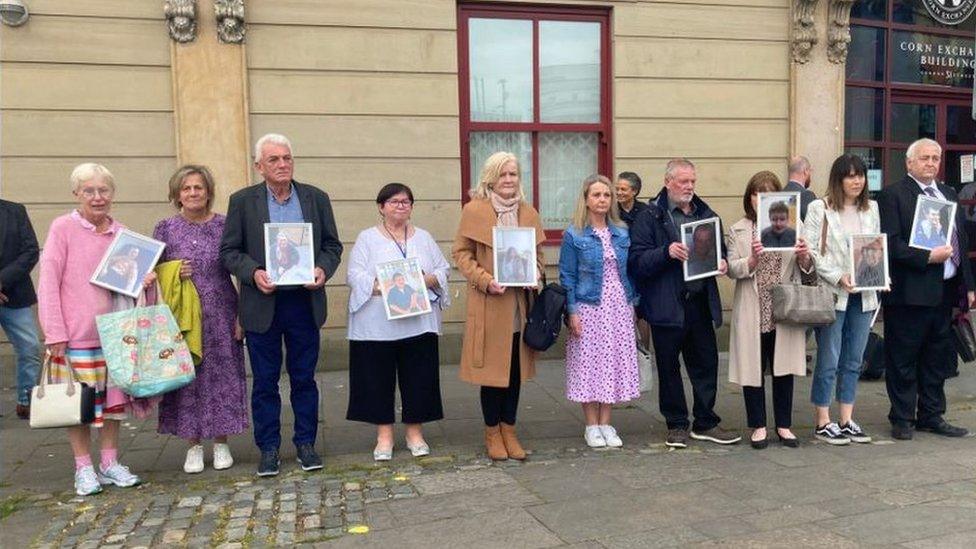
Relatives of patients at Muckamore Abbey Hospital have given evidence to the public inquiry
P119 was resettled at a new specialised learning disability home in August 2020.
Her mother said her whole mood and behaviour initially improved in the new home and that her daughter had a mobile phone, which she had not been allowed at Muckamore.
However, she told the inquiry that an external daycare placement which her daughter should have been allocated, following her move to supported living, had still not been provided.
She said P119 "suffered serious deterioration in mental health and general behaviour" and began to display extreme self-harm and suicidal behaviours for which she was taken to hospital.
P119's mother said the Belfast Health Trust's failure to implement the external daycare placement for her daughter was "the most significant reason for what happened to P119 at this time," she said.
"P119 did return to her facility after one week but still to this day she has not been allocated the external day care placement that was agreed and still to this day she is not the same," she said
"I do not believe she will be until this is resolved," she added.
Related topics
- Published11 October 2021
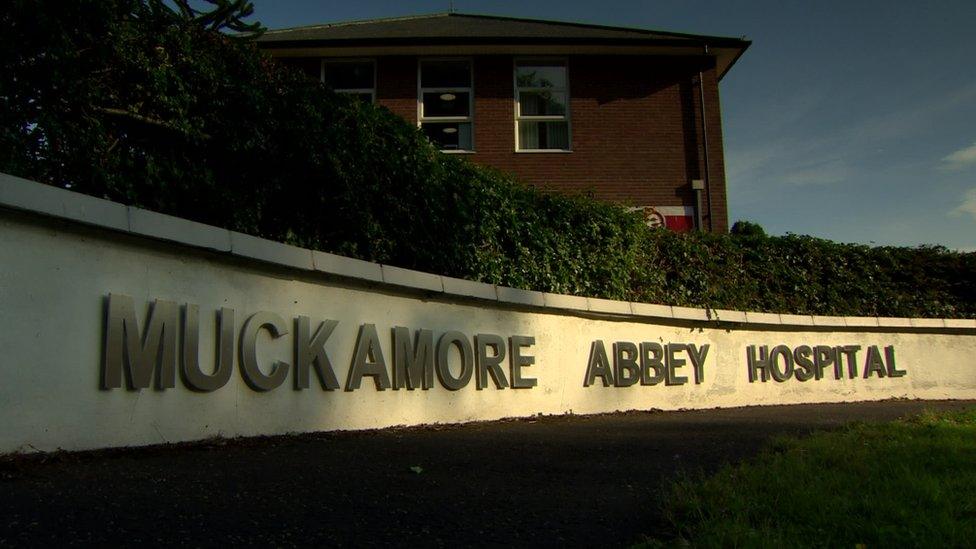
- Published7 September 2020
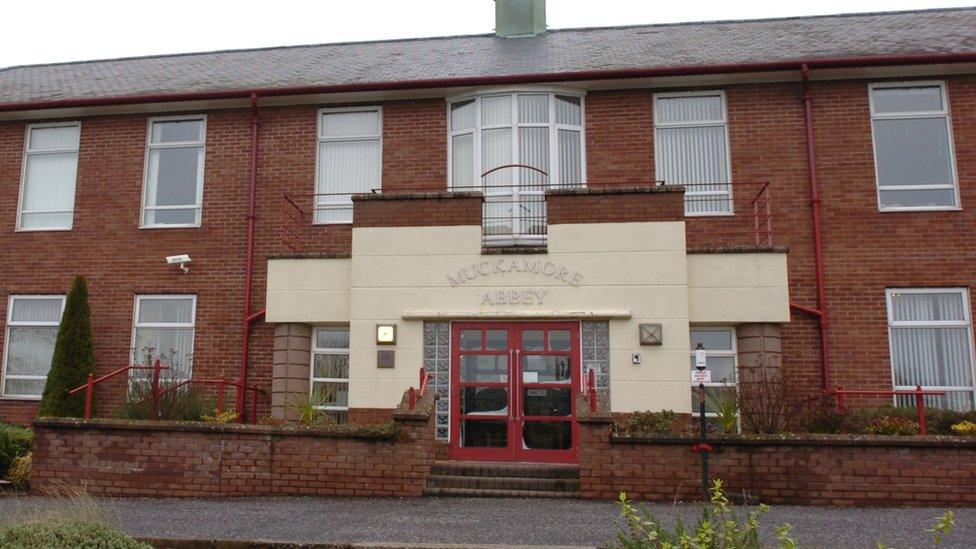
- Published6 August 2020
